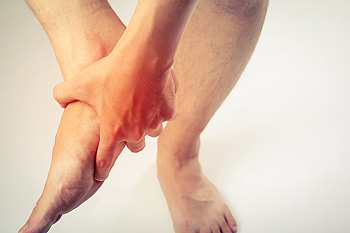
Plantar fasciitis is a common cause of heel pain, occurring when the plantar fascia, a thick band of tissue connecting your heel to your toes, becomes inflamed or irritated. It often results from overuse, wearing poor footwear, obesity, or tight calf muscles. Symptoms include sharp, stabbing pain in the heel or arch, especially noticeable with the first steps in the morning or after long periods of rest. The affected area may feel tender, swollen, or stiff. A podiatrist can diagnose plantar fasciitis by conducting a thorough examination. Treatments include custom orthotics, stretching exercises, and footwear modifications to reduce stress on the foot. In some cases, advanced treatments like corticosteroid injections may be necessary. With proper care, most people find relief and can return to their daily activities comfortably. If you have plantar fasciitis, it is suggested that you schedule an appointment with a podiatrist who can effectively treat this condition.
Plantar fasciitis is a common foot condition that is often caused by a strain injury. If you are experiencing heel pain or symptoms of plantar fasciitis, contact Josef Elouze, DPM from Elite Podiatry. Our doctor can provide the care you need to keep you pain-free and on your feet.
What Is Plantar Fasciitis?
Plantar fasciitis is one of the most common causes of heel pain. The plantar fascia is a ligament that connects your heel to the front of your foot. When this ligament becomes inflamed, plantar fasciitis is the result. If you have plantar fasciitis you will have a stabbing pain that usually occurs with your first steps in the morning. As the day progresses and you walk around more, this pain will start to disappear, but it will return after long periods of standing or sitting.
What Causes Plantar Fasciitis?
- Excessive running
- Having high arches in your feet
- Other foot issues such as flat feet
- Pregnancy (due to the sudden weight gain)
- Being on your feet very often
There are some risk factors that may make you more likely to develop plantar fasciitis compared to others. The condition most commonly affects adults between the ages of 40 and 60. It also tends to affect people who are obese because the extra pounds result in extra stress being placed on the plantar fascia.
Prevention
- Take good care of your feet – Wear shoes that have good arch support and heel cushioning.
- Maintain a healthy weight
- If you are a runner, alternate running with other sports that won’t cause heel pain
There are a variety of treatment options available for plantar fasciitis along with the pain that accompanies it. Additionally, physical therapy is a very important component in the treatment process. It is important that you meet with your podiatrist to determine which treatment option is best for you.
If you have any questions, please feel free to contact our office located in (Holiday City) Toms River, NJ . We offer the newest diagnostic and treatment technologies for all your foot care needs.

